
Fagatogo: The Heart of American Samoa
Nestled in the tropical embrace of American Samoa, Fagatogo is a gem waiting to be discovered. As the administrative and cultural center of the territory, Fagatogo offers a blend of rich history, vibrant traditions, and natural beauty. The city is a gateway to understanding the Samoan way of life, where the past and present harmoniously coexist. Fagatogo is known for its bustling market, the Fagatogo Market, where locals gather to sell fresh produce, handmade crafts, and traditional Samoan food. It's a perfect spot for tourists to immerse themselves in local culture and savor authentic flavors. The market is also a great place to pick up souvenirs and interact with the friendly residents. The city is home to several historical and cultural landmarks, including the Jean P. Haydon Museum, which offers a fascinating glimpse into Samoan history and culture. Nearby, the Fagatogo Square is a central hub where visitors can relax, enjoy local performances, and experience the community spirit of American Samoa. The close proximity to the ocean also provides opportunities for water activities, such as snorkeling and diving, allowing visitors to explore the vibrant marine life in the surrounding waters.
Local tips in Fagatogo
- Visit the Fagatogo Market early in the morning for the freshest produce and best selection of local crafts.
- Bring cash, as many local vendors may not accept credit cards.
- Wear comfortable shoes for walking around the city and exploring its many attractions.
- Learn a few basic Samoan phrases to enhance your interactions with locals.
- Don't miss the Sunday umu (traditional Samoan feast) for an authentic culinary experience.
- Respect local customs and traditions, especially when visiting religious sites and attending cultural events.
Fagatogo: The Heart of American Samoa
Nestled in the tropical embrace of American Samoa, Fagatogo is a gem waiting to be discovered. As the administrative and cultural center of the territory, Fagatogo offers a blend of rich history, vibrant traditions, and natural beauty. The city is a gateway to understanding the Samoan way of life, where the past and present harmoniously coexist. Fagatogo is known for its bustling market, the Fagatogo Market, where locals gather to sell fresh produce, handmade crafts, and traditional Samoan food. It's a perfect spot for tourists to immerse themselves in local culture and savor authentic flavors. The market is also a great place to pick up souvenirs and interact with the friendly residents. The city is home to several historical and cultural landmarks, including the Jean P. Haydon Museum, which offers a fascinating glimpse into Samoan history and culture. Nearby, the Fagatogo Square is a central hub where visitors can relax, enjoy local performances, and experience the community spirit of American Samoa. The close proximity to the ocean also provides opportunities for water activities, such as snorkeling and diving, allowing visitors to explore the vibrant marine life in the surrounding waters.
When is the best time to go to Fagatogo?
Unmissable attractions to see
Pago Pago Harbour
Discover Pago Pago Harbour: A stunning volcanic harbor steeped in history, offering natural beauty and a vibrant gateway to American Samoa.
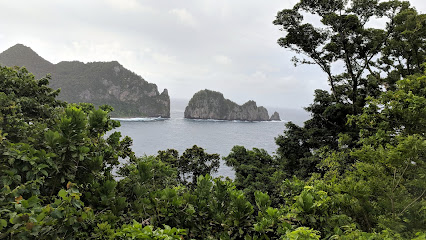
Turtle and Shark
Discover the legendary Turtle and Shark cove in Vaitogi, American Samoa, where folklore meets dramatic coastal scenery.
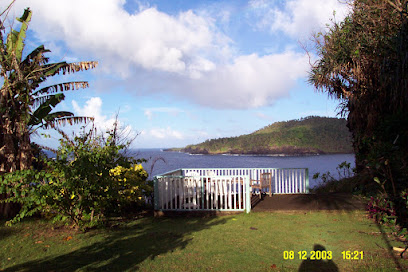
Tauese P. F. Sunia Ocean Center
Discover American Samoa's marine wonders at the Tauese P. F. Sunia Ocean Center. Engaging exhibits for all ages!
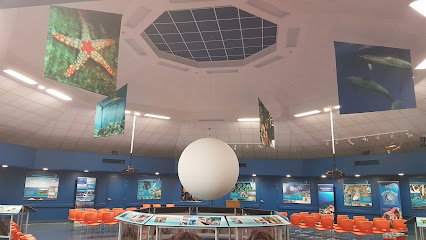
Fagasā Pass Trailhead to Mt. 'Alava Hiking Trail
Hike through lush rainforest to panoramic views from Mt. 'Alava, a must-see peak in American Samoa's National Park.
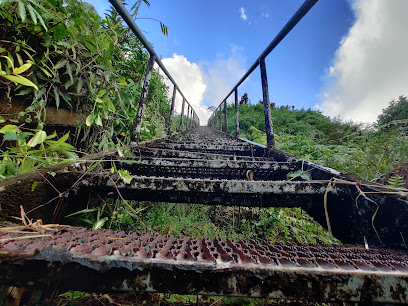
Fagatogo Market
Experience the vibrant culture of American Samoa at Fagatogo Market, offering fresh produce, local crafts, and a taste of island life.
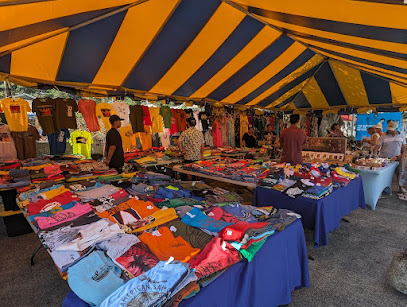
Fagamalo american samoa
Discover Fagamalo, American Samoa: A blend of serene beauty, rich history, and vibrant Samoan culture on the tranquil north shore of Tutuila Island.
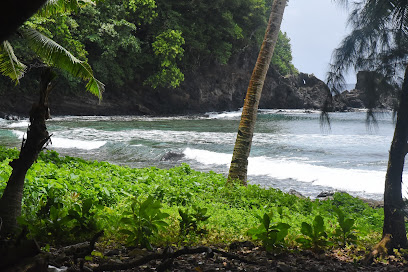
Essential places to dine
McDonald's
Experience global fast food favorites blended with local culture at McDonald's Tafuna - open 24/7 for all your cravings.
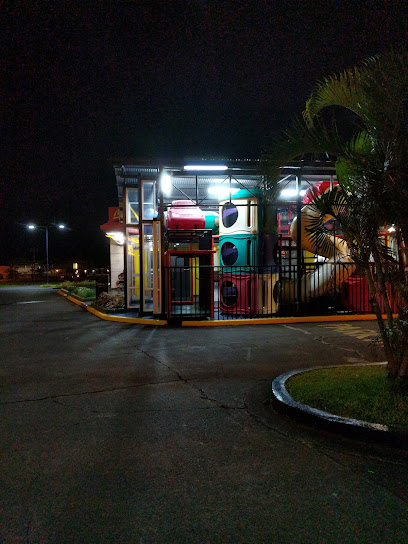
Tisa's Barefoot Bar
Experience island life at Tisa's Barefoot Bar—where fresh seafood meets stunning ocean views in a relaxed atmosphere.
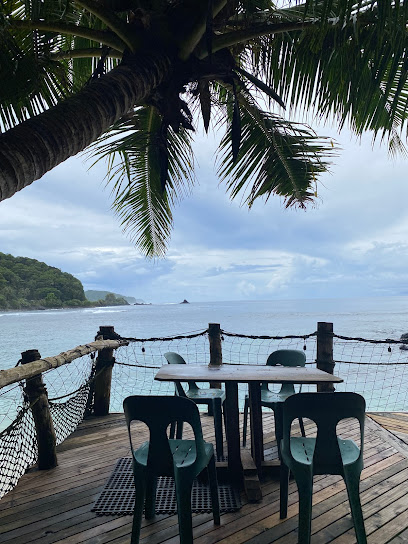
DDW Restaurant
Experience the rich culinary heritage of Utulei at DDW Restaurant, where local flavors meet international cuisine in a warm setting.
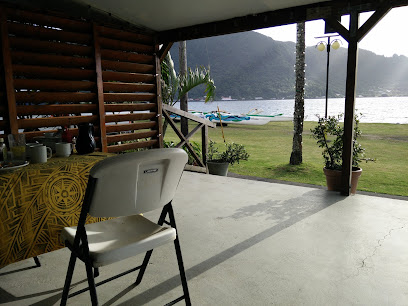
The Koko Bean Cafe
Discover the essence of local cuisine at The Koko Bean Cafe in Nu'uuli - where every bite tells a story.
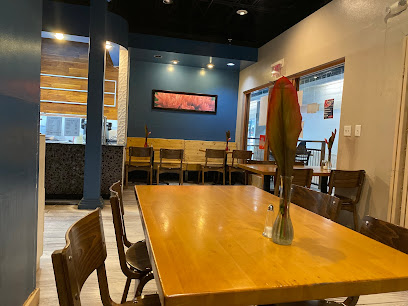
Carl's Jr.
Experience delicious fast food at Carl's Jr. in Pago Pago - where flavor meets convenience in a vibrant setting.
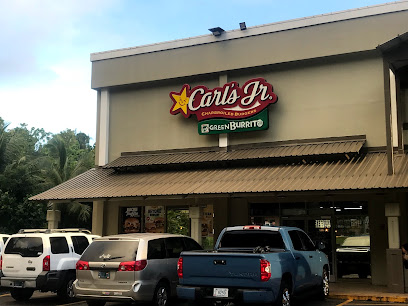
Cecilias Restaurant & Bar
Discover authentic Samoan cuisine at Cecilias Restaurant & Bar in Pago Pago – where every dish tells a story.
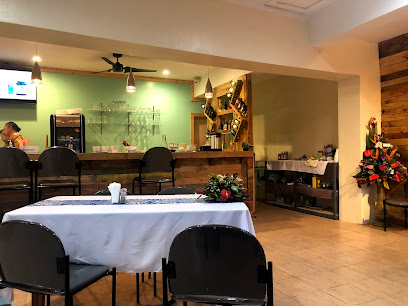
Paradise Pizza
Discover Paradise Pizza in Pago Pago - where fresh ingredients meet mouthwatering flavors for an unforgettable dining experience.
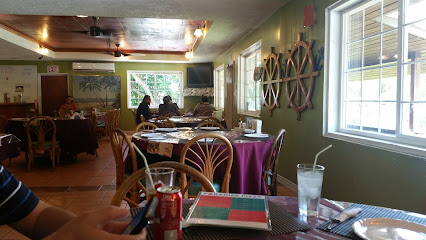
Milovales Burgers and Fish & Chips
Discover delicious burgers and crispy fish & chips at Milovales in Nu'uuli – where fast food meets local flavor!
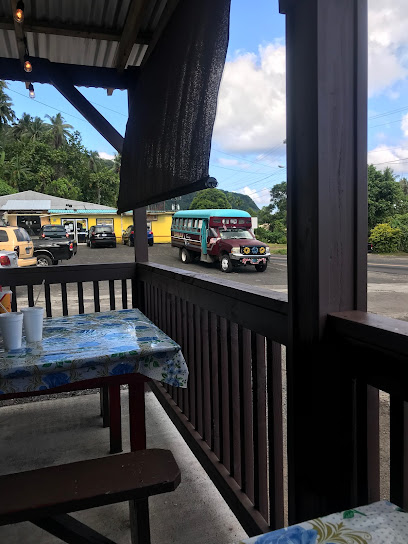
Tropical Chicken and Pizza
Discover Tropical Chicken and Pizza in Pago Pago – where delicious pizzas meet tropical flavors amidst stunning island views.
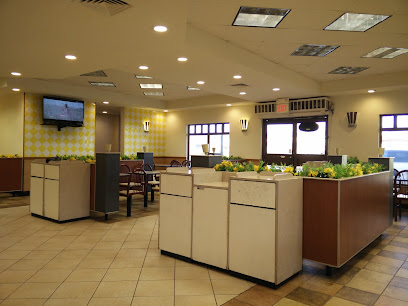
Oasis
Savor authentic Korean cuisine at Oasis in Tafuna, where every dish tells a story and every meal is an unforgettable experience.
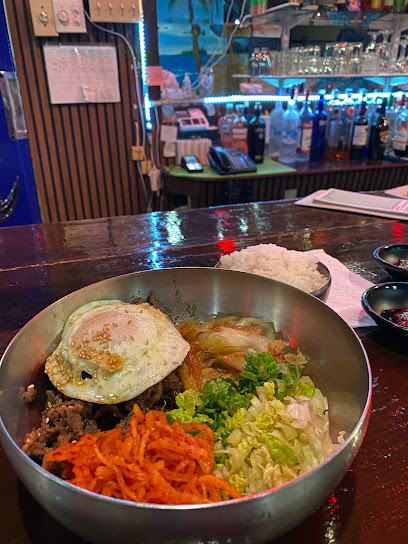
Flying Fox Gastropub
Discover exquisite flavors at Flying Fox Gastropub in Pago Pago - where local ingredients meet culinary creativity.
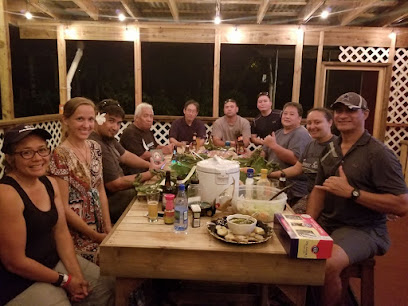
T J D - Pho Vietnamese Restaurant
Discover authentic Vietnamese cuisine at T J D - Pho Restaurant in Malaeimi, where delicious pho and traditional dishes await.
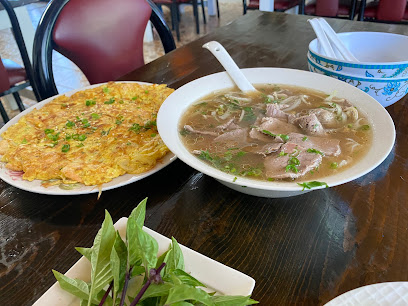
Manuia Restaurant
Experience authentic Korean cuisine at Manuia Restaurant in Tafuna - a culinary gem blending tradition with modern flavors.
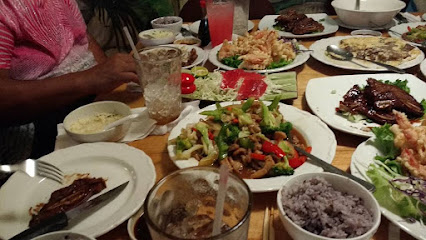
Nina’s Restaurant
Discover delightful local flavors and international cuisine at Nina's Restaurant in Tafuna - a must-visit dining destination.
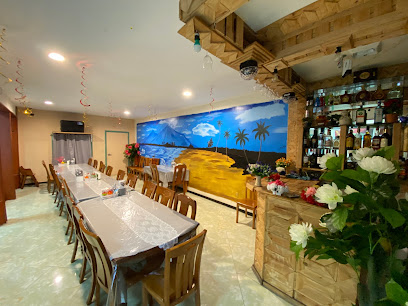
Mama's Kitchen
Discover authentic Samoan cuisine at Mama's Kitchen in Nu'uuli - where every dish tells a story.
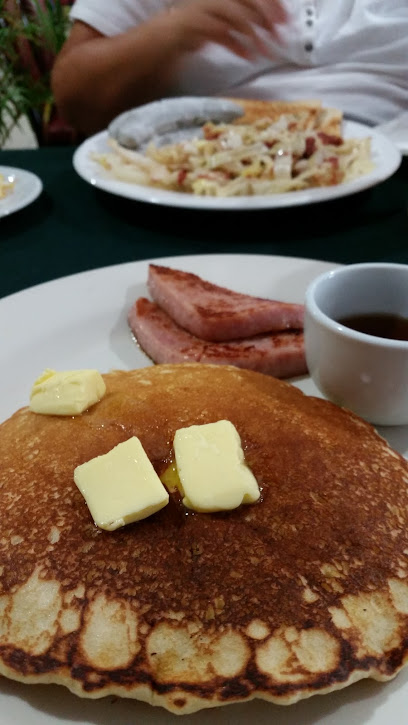
Markets, malls and hidden boutiques
Laufou Shopping Center
Experience the vibrant shopping scene at Laufou Shopping Center in Nu'uuli, where local culture meets modern retail.
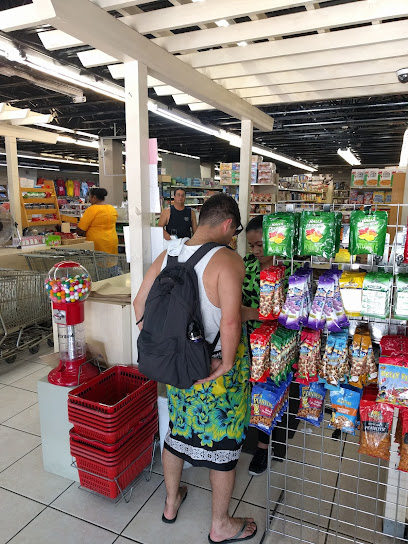
Cost.U.Less
Explore Cost.U.Less in Pago Pago for a unique shopping experience with fresh produce, local flavors, and unbeatable wholesale prices.
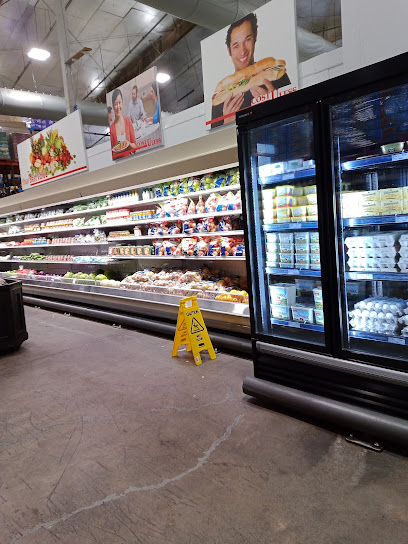
US AAFES American Samoa Post Exchange
Discover shopping at the US AAFES American Samoa Post Exchange, where quality meets community in a unique retail experience.
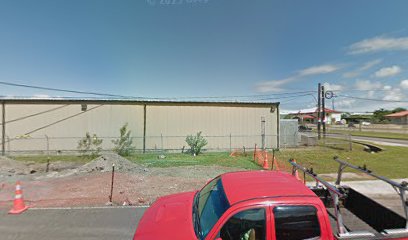
Manu'a Store
Explore the unique offerings of Manu'a Store in Nu'uuli, where local culture meets home goods shopping.
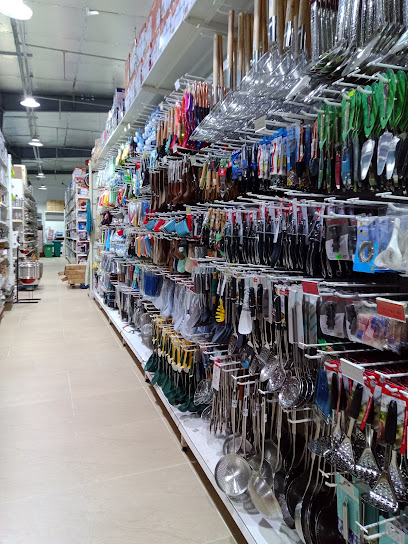
Fagatogo Square
Experience the heart of Fagatogo at Fagatogo Square, a vibrant shopping mall filled with local crafts, delicious dining, and cultural charm.
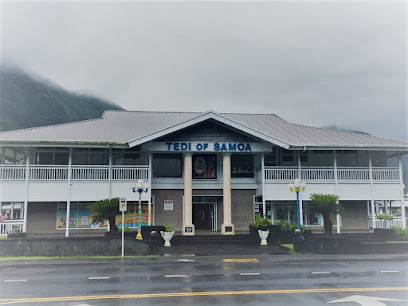
Forsgren
Discover the Convenience of Forsgren, the Premier Supermarket in Nu'uuli, Offering Fresh Local Produce and Unique Souvenirs.
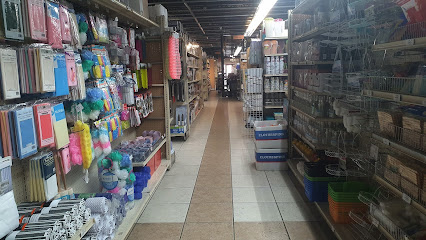
KT Mart
Explore the vibrant fashion at KT Mart in Nu'uuli, a perfect blend of local style and affordability for every traveler.
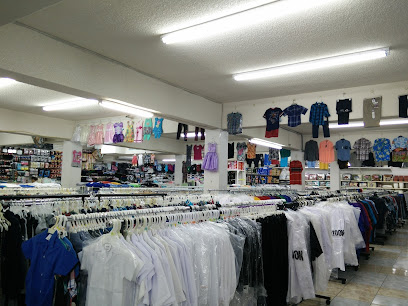
Skyview Incorporated
Experience the best of Pago Pago with a visit to Skyview Incorporated, your ultimate grocery store for local and international flavors.
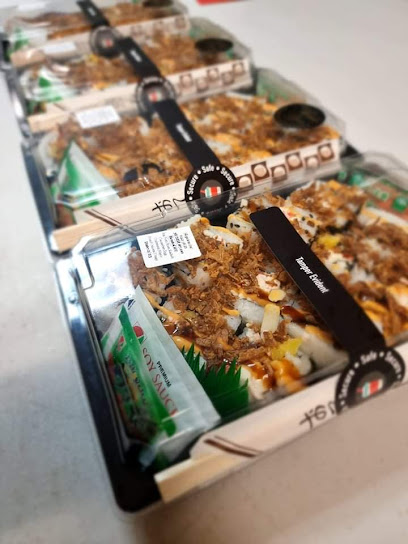
Tropik Traders
Discover local culture through fashion at Tropik Traders in Nu'uuli, where unique clothing and accessories await every traveler.
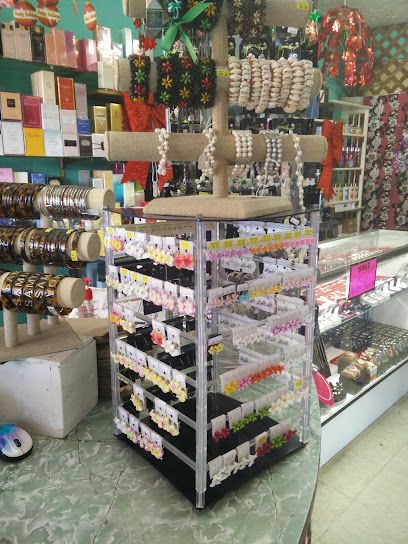
Shoe Tree
Explore the Shoe Tree in Nu'uuli, a captivating cultural landmark adorned with shoes, symbolizing local traditions and vibrant stories.
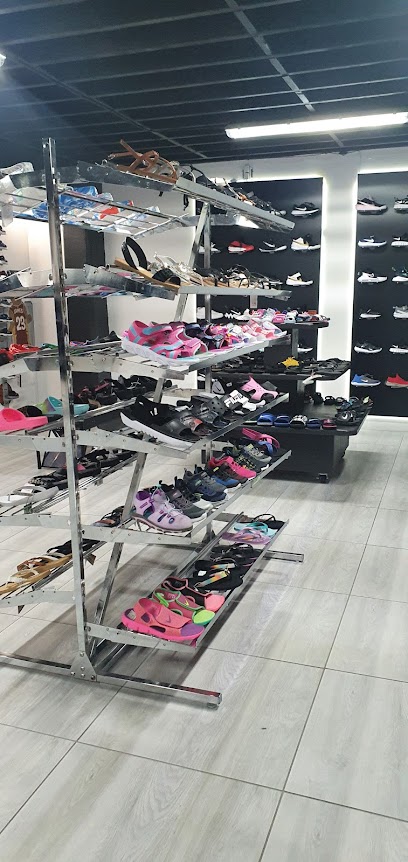
Island Image Creations
Discover the vibrant world of fabrics and local craftsmanship at Island Image Creations in Nu'uuli, a haven for sewing enthusiasts and travelers alike.
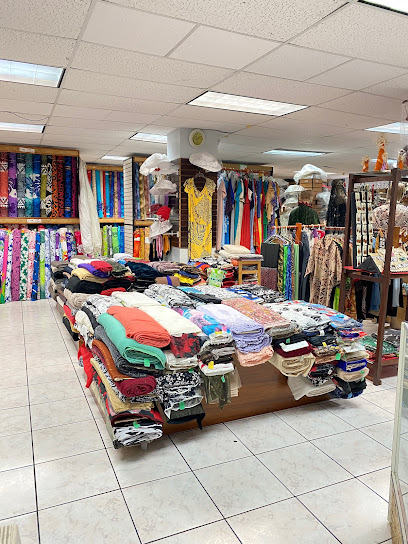
Tedi Of Samoa
Explore Tedi Of Samoa: the heart of shopping and local culture in Fagatogo, Eastern District, offering unique crafts and vibrant community spirit.
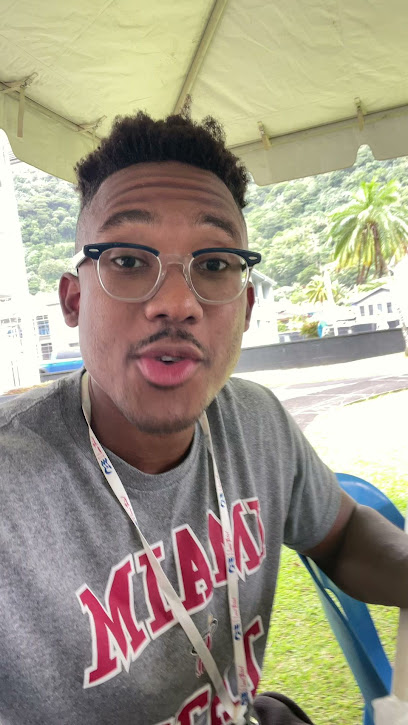
Pago Supermarket Store
Experience authentic Samoan culture at Pago Supermarket Store – your go-to grocery destination in Pago Pago for local flavors and friendly faces.
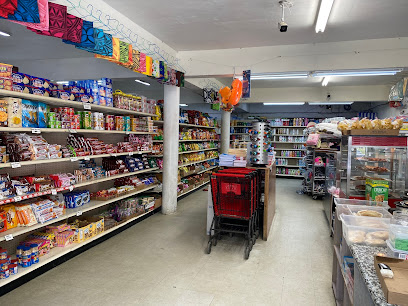
Downtown Ink Tattoo Studio
Explore your individuality at Downtown Ink Tattoo Studio, where skilled artists create stunning and personalized tattoos in the heart of Pago Pago.

KOKOLAND STORE
Explore the local culture and flavors at Kokoland Store, your go-to supermarket in Tafuna for all your shopping needs.
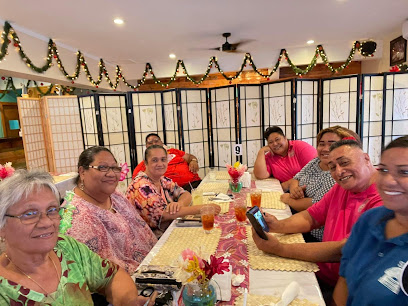
Essential bars & hidden hideouts
Tisa's Barefoot Bar
Discover the flavors of the South Pacific with stunning ocean views at Tisa's Barefoot Bar, where island life meets culinary delight.
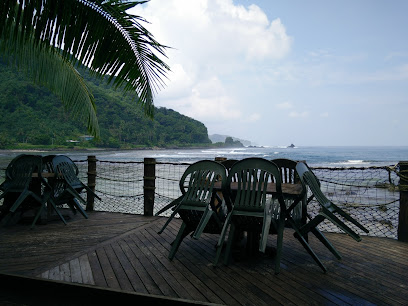
Paradise Pizza
Discover the flavors of American Samoa at Paradise Pizza, where fresh ingredients meet island charm in a vibrant dining experience.
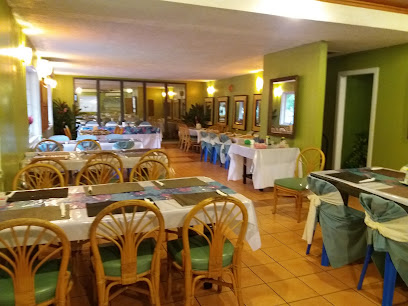
Cecilias Restaurant & Bar
Experience the vibrant flavors of Samoa at Cecilia's Restaurant & Bar, where local cuisine meets warm hospitality in a stunning setting.
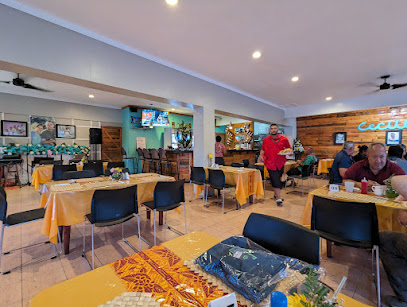
Oasis
Savor authentic Korean cuisine at Oasis in Tafuna, where vibrant flavors meet warm hospitality for an unforgettable dining experience.
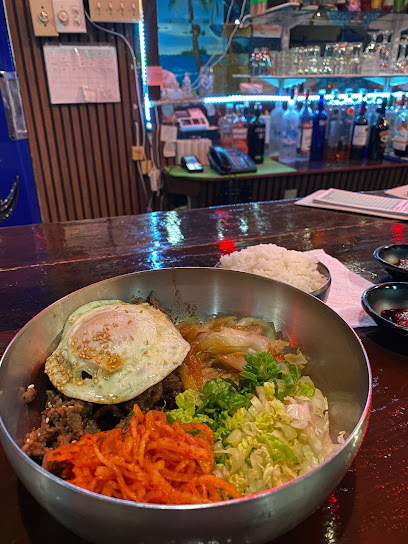
Flying Fox Gastropub
Experience a culinary journey at Flying Fox Gastropub, where Pacific flavors meet modern dining in the heart of Pago Pago.
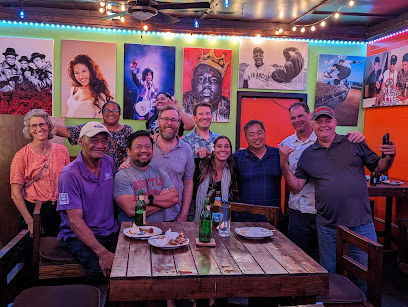
Paradise Bar & Grill
Experience the lively atmosphere and local flavors at Paradise Bar & Grill, a must-visit for tourists in Nu'uuli, American Samoa.
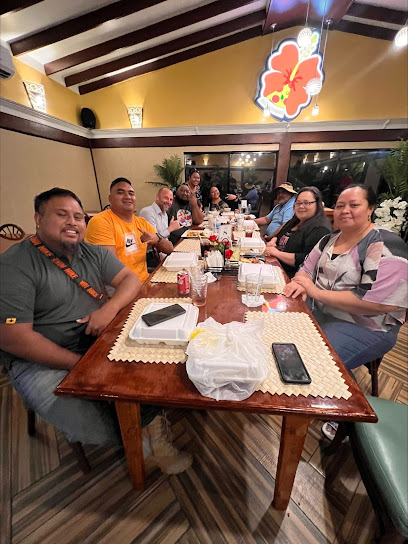
Goat Island Cafe
Goat Island Cafe in Utulei: A Culinary Oasis Offering Authentic South Pacific Flavors Amidst Stunning Ocean Views.
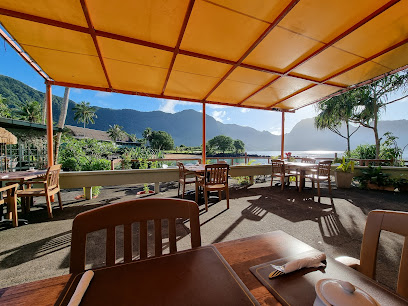
Emelio's Restaurant
Discover the culinary delights of Pago Pago at Emelio's Restaurant, where fresh local ingredients meet traditional Samoan flavors.
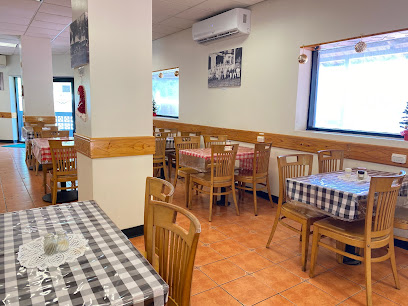
Moon Korean Restaurant
Experience the essence of Korean cuisine at Moon Korean Restaurant, where every dish tells a story of tradition and flavor.
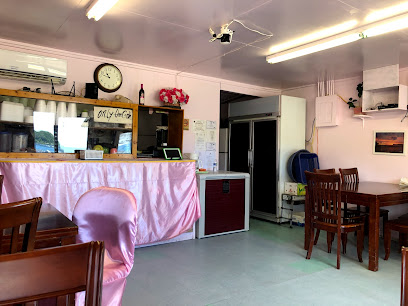
Faga'alu Restaurant
Discover authentic Vietnamese flavors in the heart of Faga'alu, American Samoa, at Faga'alu Restaurant, where every dish is a delight.
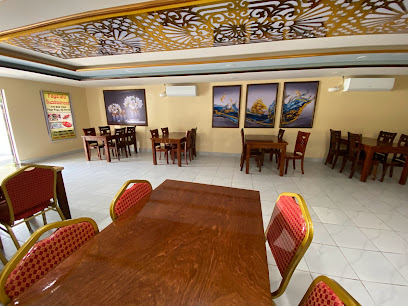
Fiafia Restaurant
Discover the rich flavors of Asian cuisine at Fiafia Restaurant, a must-visit culinary destination in Fagatogo.
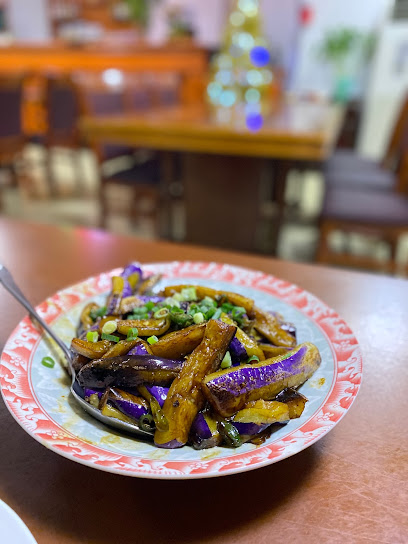
Food Bar
Discover the fast food haven of Tafuna, where local flavors meet quick service at Food Bar, the perfect stop for hungry travelers.
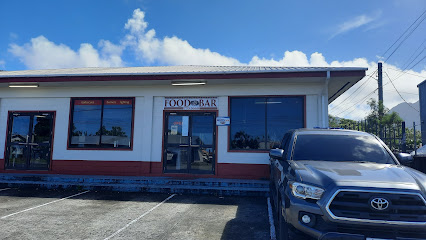
Good Vibes Bar And Grill
Discover the perfect family-friendly dining experience at Good Vibes Bar And Grill in Tafuna, where delicious food and a welcoming atmosphere await.
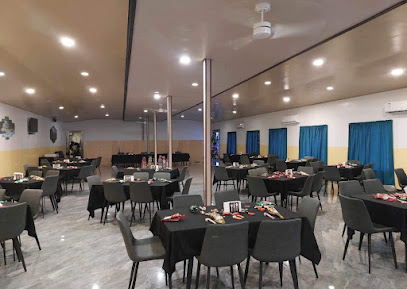
Little Mexico
Discover the authentic taste of Mexico at Little Mexico, where vibrant flavors and warm hospitality create an unforgettable dining experience in Fagatogo.
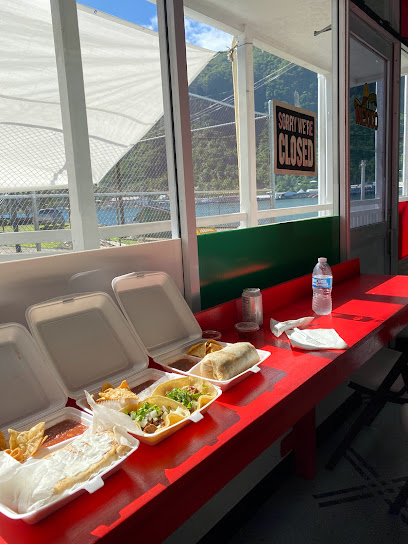
Local Phrases
-
- HelloTalofa
[Tah-loh-fah] - GoodbyeFa
[Fah] - YesIoe
[Ee-oh-eh] - NoLeai
[Lei-eye] - Please/You're welcomeFa'amalie
[Fah-ah-mah-lee-eh] - Thank youFa'afetai
[Fah-ah-feh-tie] - Excuse me/SorryFa'amalie atu
[Fah-ah-mah-lee-eh ah-too] - How are you?O ai oe?
[Oh-eye oh-eh] - Fine. And you?Lelei. Pe a ou te oe?
[Lay-lay. Pay-ah oh-teh oh-eh] - Do you speak English?Ou te lea fa'ailoa i le fa'aperetania?
[Oh-teh lay-ah fah-eye-low-ah ee lay fah-ah-peh-reh-tah-knee-ah] - I don't understandO le a le mafai ona ou te manatu
[Oh lay-ah lay mah-fie oh-na oh-teh mah-nah-too]
- HelloTalofa
-
- I'd like to see the menu, pleaseOu te fia va'ai i le meaai, fa'amalie atu
[Oh-teh fee-ah vah-ah-ee ee lay meh-ah-eye, fah-ah-mah-lee-eh ah-too] - I don't eat meatO le a ou te ai ni mea'ai
[Oh lay-ah oh-teh eye knee meh-ah-eye] - Cheers!Manuia!
[Mah-noo-ee-ah] - I would like to pay, pleaseOu te fia tu'u, fa'amalie atu
[Oh-teh fee-ah too-oo, fah-ah-mah-lee-eh ah-too]
- I'd like to see the menu, pleaseOu te fia va'ai i le meaai, fa'amalie atu
-
- Help!Fa'amalie!
[Fah-ah-mah-lee-eh] - Go away!Toe fa'aaoga atu!
[Toh-eh fah-ah-ah-ngah ah-too] - Call the Police!Fesoasoani i leoleo!
[Feh-so-ah-so-ah-nee ee lay-oh-lay-oh] - Call a doctor!Fesoasoani i le foma'i!
[Feh-so-ah-so-ah-nee ee lay foh-mah-ee] - I'm lostUa ou te lopa
[Oo-ah oh-teh low-pah] - I'm illUa ou te malosi
[Oo-ah oh-teh mah-low-see]
- Help!Fa'amalie!
-
- I'd like to buy...Ou te fia faatau...
[Oh-teh fee-ah fah-ah-tow] - I'm just lookingO le a ou te tatala
[Oh lay-ah oh-teh tah-tah-lah] - How much is it?E leai se uiga e fesoasoani
[Eh lie-eye seh wee-gah eh feh-so-ah-so-ah-nee] - That's too expensiveO le mea lelei atu
[Oh lay meh-ah lay-lay ah-too] - Can you lower the price?E te le fa'asa'i le tau
[Eh teh lay fah-ah-sah-ee lay tow]
- I'd like to buy...Ou te fia faatau...
-
- What time is it?O le a le taimi?
[Oh lay ah lay tah-ee-me] - It's one o'clockUa se le tasi
[Oo-ah seh lay tah-see] - Half past (10)I le itu e sefulu
[Ee lay ee-too eh seh-foo-loo] - MorningTaeao
[Tah-eh-ah-oh] - AfternoonAfiafi
[Ah-fee-ah-fee] - EveningAso
[Ah-so] - YesterdayAnanafi
[Ah-nah-nah-fee] - TodayLenei
[Lay-nay-ee] - TomorrowTaeao
[Tah-eh-ah-oh] - 1Tasi
[Tah-see] - 2Lua
[Loo-ah] - 3Tolu
[Tow-loo] - 4Fa
[Fah] - 5Lima
[Lee-mah] - 6Ono
[Oh-no] - 7Fitu
[Fee-too] - 8Valu
[Vah-loo] - 9Iva
[Ee-vah] - 10Sefulu
[Seh-foo-loo]
- What time is it?O le a le taimi?
-
- Where's a/the...?Pe fea se/i le...?
[Peh feh-ah seh/ee lay] - What's the address?O le a le tuatusi?
[Oh lay ah lay twah-too-see] - Can you show me (on the map)?E te fa'amatala mai ia te a'u (i le mapa)?
[Eh teh fah-ah-mah-tah-lah mah-ee ee-ah teh ah-oo (ee lay mah-pah)] - When's the next (bus)?Aso e leai se taimi
[Ah-so eh lie-eye seh tah-ee-me] - A ticket (to ....)Tiketi (i le ....)
[Tee-keh-tee (ee lay)]
- Where's a/the...?Pe fea se/i le...?
History of Fagatogo
-
Fagatogo, located on Tutuila Island in American Samoa, has a rich Polynesian heritage dating back over 3,000 years. The original settlers were Austronesian-speaking peoples who navigated vast distances across the Pacific Ocean using stars and ocean currents as their guides. These early inhabitants established complex societies with distinct social structures, traditions, and languages, many of which continue to influence modern Samoan culture.
-
The 18th century marked the beginning of European contact with Fagatogo. The arrival of Dutch explorer Jacob Roggeveen in 1722 and French explorer Louis Antoine de Bougainville in 1768 brought new influences to the area. However, it wasn't until the 1830s that significant changes occurred with the arrival of Christian missionaries. These missionaries, particularly from the London Missionary Society, played a crucial role in transforming the local culture by introducing Christianity, Western education, and new agricultural practices.
-
In 1899, following the Tripartite Convention, the United States, Germany, and the United Kingdom agreed to divide the Samoan Islands. American Samoa, including Fagatogo, came under U.S. control. The Treaty of Cession was signed on April 17, 1900, officially making Tutuila a U.S. territory. This event marked the beginning of a new era of American influence, which brought infrastructural development and new governance structures to Fagatogo.
-
During World War II, American Samoa played a strategic role in the Pacific theater. Fagatogo became a central hub for military operations, with the U.S. Navy establishing bases and infrastructure throughout the island. The military presence led to significant economic activity and modernization, including the construction of roads, airstrips, and medical facilities. The war also brought a wave of cultural exchange as American servicemen interacted with the local population.
-
Today, Fagatogo serves as the administrative and commercial center of American Samoa. It is home to the territory's government buildings, including the Fono (legislative assembly) and the Governor's Office. Despite modernization, Fagatogo remains deeply rooted in Samoan traditions. The community continues to celebrate its heritage through festivals, traditional dance, and the practice of fa'a Samoa, the Samoan way of life that emphasizes family, respect, and communal living.
Fagatogo Essentials
-
Fagatogo is the main commercial hub of American Samoa, located on the island of Tutuila. The primary way to get there is to fly into Pago Pago International Airport (PPG), which is located about a 20-minute drive from Fagatogo. Hawaiian Airlines provides regular flights from Honolulu to Pago Pago. From the airport, you can take a taxi or arrange for a rental car to reach Fagatogo.
-
Once in Fagatogo, getting around is relatively straightforward. The island has a network of buses known as 'aiga buses,' which are brightly colored and run on fixed routes. Taxis are also available and can be hailed on the street or booked in advance. If you prefer more flexibility, renting a car is a viable option; just keep in mind that driving is on the right-hand side of the road. Walking is also a pleasant way to explore the town, as many attractions are within close proximity.
-
The official currency in American Samoa is the US Dollar (USD). Credit cards are widely accepted in most hotels, restaurants, and shops in Fagatogo. ATMs are available, but it is advisable to carry some cash for smaller establishments and market purchases. Tipping is not customary in American Samoa, but it's appreciated for exceptional service.
-
Fagatogo is generally a safe destination for tourists. However, it is always wise to take standard precautions. Avoid isolated areas at night and keep an eye on your personal belongings, especially in crowded areas like markets. Petty theft can occur, but violent crime is rare. Ensure you have travel insurance that covers medical emergencies, as healthcare facilities are limited.
-
In case of emergency, dial 911 for immediate assistance. The local police station is located in Fagatogo, and there is a hospital in nearby Pago Pago. It is advisable to carry a basic first aid kit and any necessary medications, as pharmacies may not carry a wide range of products. Familiarize yourself with the location of the nearest embassy or consulate for additional support.
-
Fashion: Do dress modestly, especially when visiting churches or attending community events. Avoid wearing overly revealing clothing. Religion: Do respect local customs and traditions. Always ask for permission before photographing people or religious sites. Public Transport: Do be polite and offer your seat to the elderly or those in need on the 'aiga buses.' Greetings: Do greet people with a smile and a simple hello. A handshake is common but not required. Eating & Drinking: Do try local dishes and be polite when offered food. It is customary to eat with your right hand.
-
To experience Fagatogo like a local, visit the Fagatogo Market, where you can buy fresh produce and local crafts. Engage with locals, who are generally friendly and eager to share their culture. Don't miss out on the opportunity to attend a traditional Samoan church service, known for its beautiful singing and community spirit. For a unique experience, take a boat trip to nearby Manu'a Islands for snorkeling and exploring untouched beaches.
Nearby Cities to Fagatogo
-
Things To Do in Pago Pago
-
Things To Do in Aua
-
Things To Do in Tafuna
-
Things To Do in Leone
-
Things To Do in Lalomanu
-
Things To Do in Apia
-
Things To Do in Mulifanua
-
Things To Do in Salelologa
-
Things To Do in Savai'i
-
Things To Do in Fagamalo
-
Things To Do in Manase
-
Things To Do in Asau
-
Things To Do in Falealupo
-
Things To Do in Ha'ano
-
Things To Do in Foa








